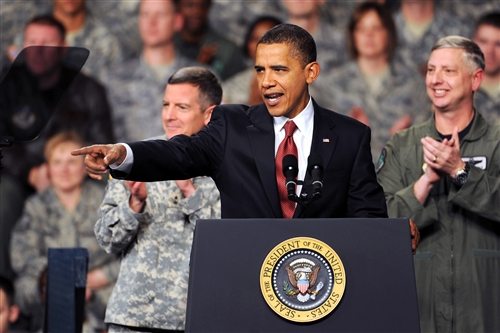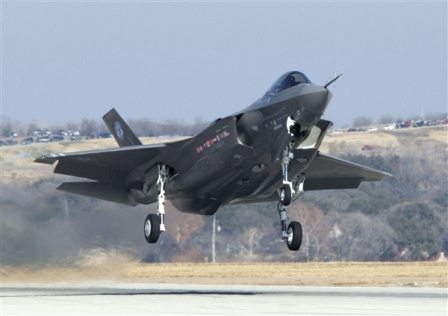President Barack Obama Thursday signalled a pivotal American shift to Asia, pledging he would not let Washington’s budget crunch compromise his expansive vision and military presence in the region.
His commitment came a day after the United States said it would deploy up to 2,500 Marines to northern Australia and tighten air force cooperation, sparking concern from China, whose rapid rise is reorienting Asia’s strategic balance.
In a message aimed both at a dynamic region he sees as key to the US economic future and warring lawmakers at home, Obama told the Australian parliament the Asia-Pacific was too vital to fall prey to US penny-pinching.
“As the United States puts our fiscal house in order, we are reducing our spending,” Obama said, warning that reductions in funding for the US military machine were inevitable after years of huge spending in Iraq and Afghanistan.
But he added: “Here is what this region must know. As we end today’s wars, I have directed my national security team to make our presence and missions in the Asia-Pacific a top priority.
“As a result, reductions in US defence spending will not — I repeat, will not — come at the expense of the Asia-Pacific.
“The United States is a Pacific power, and we are here to stay.”
But Obama’s promise came at an inopportune moment, as by coincidence the US national debt passed $15 trillion for the first time hours before he spoke, prompting Republicans to slam the president on spending.
During the speech, Obama touched on testy ties with China, pressed for more reform in Myanmar and warned North Korea would pay a heavy price for the proliferation of nuclear or other materials to states or individuals.
“The United States will continue our effort to build a cooperative relationship with China,” Obama said on a tour which has laid bare divisions between Washington and Beijing.
“All of our nations have a profound interest in the rise of a peaceful and prosperous China — and that is why the United States welcomes it,” he added.
“We will do this, even as we continue to speak candidly with Beijing about the importance of upholding international norms and respecting the universal human rights of the Chinese people.”
Obama’s comments on funding represent a landmark moment in US policy towards a region seething with territorial disputes, containing trade routes vital to US prosperity and which is transfixed by the rise of China.
He gave his commitment on the latest leg of a Pacific tour which is meant to underscore that the United States will remain a key player in Asia-Pacific security. After Australia, Obama heads to East Asian summit talks in Indonesia.
“We will preserve our unique ability to project power and deter threats to peace,” Obama told the Australian lawmakers.
“And we will constantly strengthen our capabilities to meet the needs of the 21st century. Our enduring interests in the region demand our enduring presence in this region.”
Obama believes that the booming Pacific rim, worth trillions in dollars in trade to the United States, is vital to America’s economic future, and will produce jobs and prosperity for decades to come.
In his speech, Obama surveyed US policy towards Asia.
“Here, we see the future,” he said, pledging his administration would “play a larger and long-term role in shaping this region and its future”.
“As the world’s fastest-growing region — and home to more than half the global economy — Asia is critical to achieving my highest priority: creating jobs and opportunity for the American people.”
Obama is facing a tough re-election fight next year amid 9 percent unemployment and a slow recovery, and is under huge political pressure to demonstrate he can leverage jobs and economic growth from Asia.
Ahead of his address to parliament, Obama laid a wreath at the Australian War Memorial and he later departed for Darwin, where the new Marine deployment will be based.
In the tropical northern outpost, he will visit the memorial of the USS Peary, which honours the 89 men killed when the warship was bombed by the Japanese during World War II raids on the port.











